There’s a moment at every concert-right before the lights go down, when the crowd falls silent, and the first note hangs in the air-when you realize: concert etiquette isn’t about being perfect. It’s about respecting the space you’re in. And the very first rule? Keep your phone off or on silent.
It sounds simple. But how many times have you been halfway through a powerful ballad when someone’s phone rings? Or worse-when the whole row in front of you is filming the entire show like it’s a TikTok audition? That’s not just annoying. It breaks the spell. Live music is a shared experience. The artist poured hours into the set. The sound engineer spent days tuning the acoustics. The person next to you saved for months to be here. Your phone doesn’t belong in that moment.
Turn it off. Seriously. Not vibrate. Not airplane mode. Off. If you’re worried about missing something, you’re not alone. But here’s the truth: you won’t miss anything you’ll actually remember. The blurry video you take at 3 a.m. won’t capture the way the bass shook your chest. The 12-second clip won’t hold the emotion of the crowd singing along to the chorus. The real memory? That’s in your head. In your heart. Not in your gallery.
And yes, this rule applies even if you’re at a small indie show or a massive stadium gig. It doesn’t matter if the band says ‘take photos’ on stage. That’s a cue to enjoy the moment, not to turn your phone into a livestream rig. Bands say it because they want you to feel included. Not because they want 200 phones blocking the view of the people behind you.
There’s a reason this is the first rule. Everything else flows from it. If you’re distracted by your screen, you won’t notice when someone next to you is crying during a slow song. You won’t hear the subtle shift in the drummer’s rhythm. You won’t feel the collective breath before the final chorus. You become part of the noise instead of part of the music.
Why This Rule Matters More Than You Think
In 2023, a study by the International Association of Concert Halls found that 78% of attendees said phone use was the top disruptor at live shows. That’s higher than talking, standing up, or even clapping at the wrong time. It’s not just about manners. It’s about safety. At packed venues, people are jostling. Phones in the air mean accidental pokes. Trips. Falls. There were over 200 reported incidents of concert-goers injured by raised phones in North America and Europe in 2024 alone.
And let’s not forget the artists. Musicians aren’t robots. They feed off the energy of the room. When they see a sea of glowing screens instead of faces lit by stage lights, it changes their performance. You’ve seen it-how some artists pause, look out, and say, ‘I can’t feel you.’ That’s not just a line. It’s a real moment of disconnection. And it hurts.
One guitarist from Wellington told me after a show: ‘I played ‘Wasted Days’ last night. Halfway through, I looked up and saw six phones recording the same 10 seconds. I lost my place. I forgot the lyrics. I had to stop. That’s the first time that’s ever happened.’
What About Recording for Memory?
‘But what if I want to remember it?’ you ask. Fair point. But here’s the difference: recording for memory is not the same as recording to share. If you want to keep a memory, do it quietly. Take one photo after the show. Or better yet-write down one line from the setlist that stuck with you. Or hum the melody in your head on the way home. That’s how memories stick.
Try this next time: at the start of the concert, put your phone in your jacket pocket. Don’t reach for it until the last song. When the lights come up, you’ll realize you didn’t miss a single moment. You were there. Fully. And that’s the gift you gave yourself.
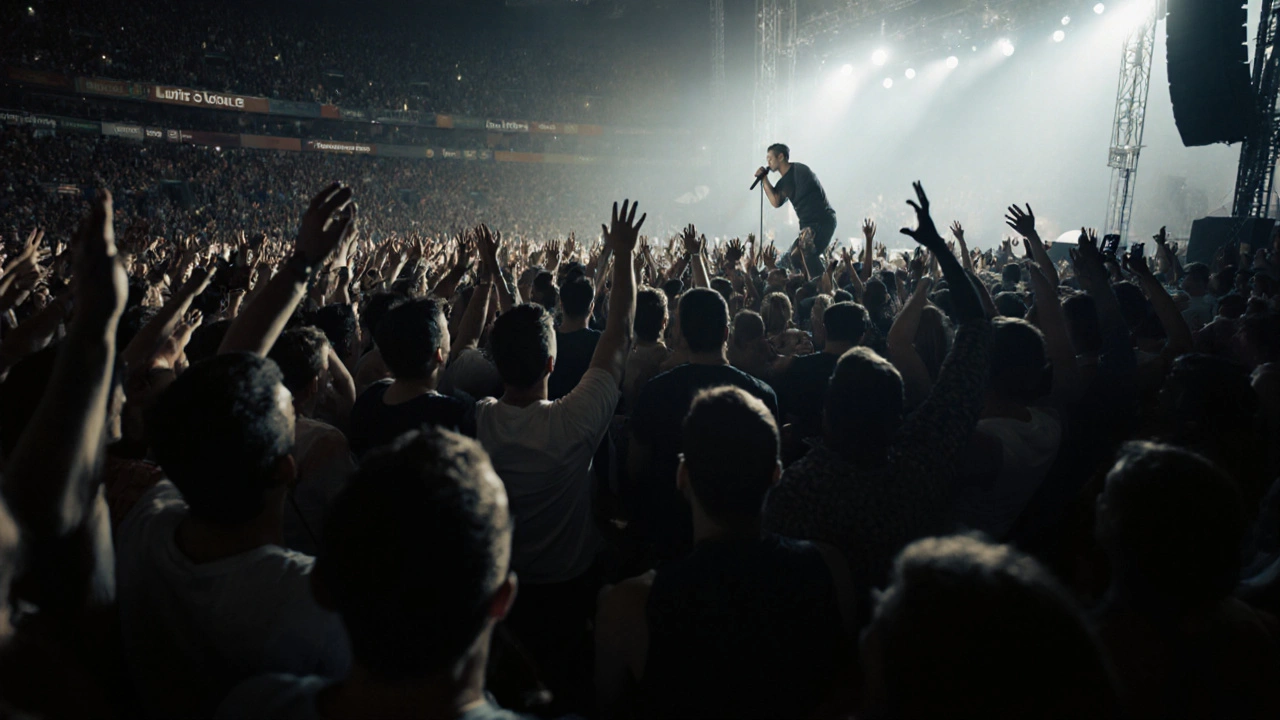
Other Rules That Follow Naturally
Once you’ve got the phone rule down, the rest starts to make sense.
- Don’t stand up in front of seated fans. If you’re tall, sit down. If you’re in the back, you’re there to hear the music-not to be the reason someone else can’t see.
- Don’t yell requests. You’re not on a talk show. Sing along if you know the words. That’s how bands know they’ve connected.
- Don’t bring giant bags or bulky coats. They block aisles. They get in the way. Leave them at home or in a locker.
- Don’t drink too much. You’re not at a party. You’re in a sacred space where sound, emotion, and silence all matter.
- Applause at the right time. Wait for the last note to fade. Don’t clap between movements in classical music. It’s not rude-it’s part of the tradition.
These aren’t rules to punish you. They’re rules to protect the experience-for everyone. Including you.
What Happens When People Break the Rules?
Some venues now have ‘phone-free zones’-sections where you have to lock your phone in a Yondr pouch before entering. It sounds extreme. But people who try it say the same thing: ‘I didn’t realize how much I was missing.’
At a recent show in Auckland, a fan left his phone in the pouch and told the staff: ‘I cried during ‘Breathe’ because I actually heard it. Not through a screen. Through my skin.’
That’s the power of silence. Of presence. Of not being distracted.
There’s a reason the first rule is about your phone. It’s the most common, most invisible, most damaging disruption. It’s not about being a stickler. It’s about being human. About honoring the moment. About letting music do what it was meant to do: move you.
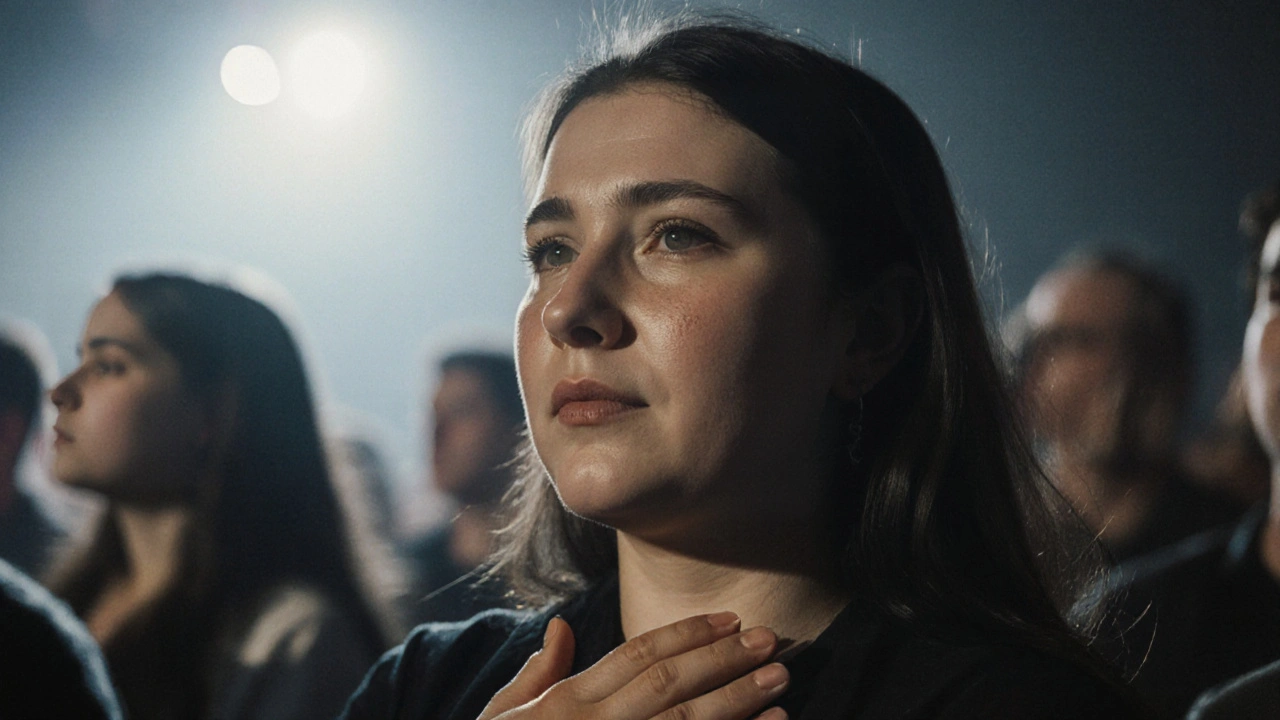
What If I’m a Photographer or Content Creator?
If you’re a professional with credentials, you’re usually given a designated area. That’s the exception. That’s not the rule. Most people aren’t photographers. Most people are fans. And for fans, the best way to capture a concert is to be there-fully.
Even if you’re shooting for a blog or a fan page, ask yourself: is this moment worth losing the real experience for? You can always watch the official livestream later. But you’ll never get back the feeling of hearing that song live for the first time.
Final Thought: This Isn’t About Rules. It’s About Respect.
Concert etiquette isn’t about policing people. It’s about creating a space where music can breathe. Where silence matters as much as the notes. Where strangers become a chorus. Where a single voice singing off-key can lift a whole room.
That only happens when everyone chooses to be present.
So next time you walk into a venue, leave your phone behind. Not because you’re told to. But because you care enough to be part of something real.
Is it okay to film a concert if I’m not sharing it?
Even if you’re not posting it, filming still blocks other people’s views and breaks the shared atmosphere. The moment you pull out your phone, you shift from participant to observer. Live music isn’t meant to be watched through a screen-even if no one else sees it.
What should I do if someone next to me is using their phone?
Politely ask them to put it away. Most people don’t realize they’re disrupting others. If they don’t respond, notify venue staff. They’re trained to handle it without escalating tension. Your quiet request might be the reason someone else gets to feel the music fully.
Are there concerts where phones are allowed?
Some festivals or pop shows encourage fan content and have designated photo zones. But even then, the rule is: don’t block views, don’t film the whole set, and never use flash. Always check the venue’s policy before you go. If there’s no clear rule, assume the standard etiquette applies.
Why do classical concerts have stricter rules than rock shows?
Classical music relies on silence between movements. A single clap or phone ring can break the tension built over minutes. It’s not about snobbery-it’s about structure. The music is composed with pauses in mind. Disrupting those moments changes how the piece lands emotionally. Rock shows are louder and more chaotic, so the rules adapt. But the core idea-respect the space-stays the same.
Is it rude to sing along?
Not at all. Singing along is one of the best parts of a live show. Just keep it respectful. Don’t scream over the lead singer. Don’t sing loudly if you’re in front of someone who came to listen quietly. Match the energy of the crowd. If everyone’s belting it out, go for it. If it’s a quiet ballad, hum along. Your voice belongs there-just not above everyone else’s.
What if I need to take a call during the concert?
Don’t. If it’s urgent, step out before the show starts. If something comes up during the concert, let it go. No text, call, or notification is more important than being present for a live performance. You can respond after the last song. The world will wait.

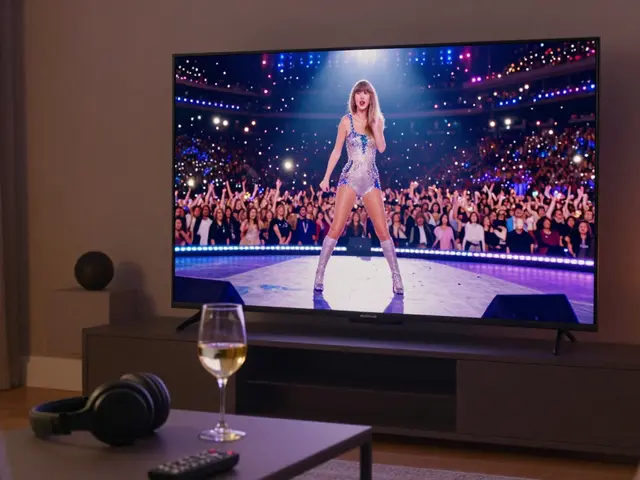
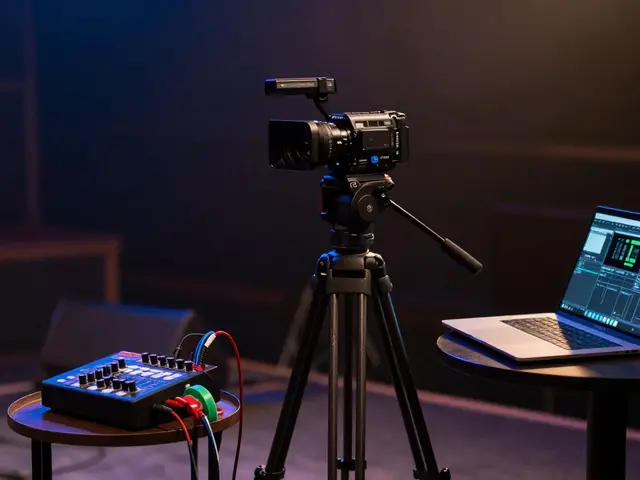

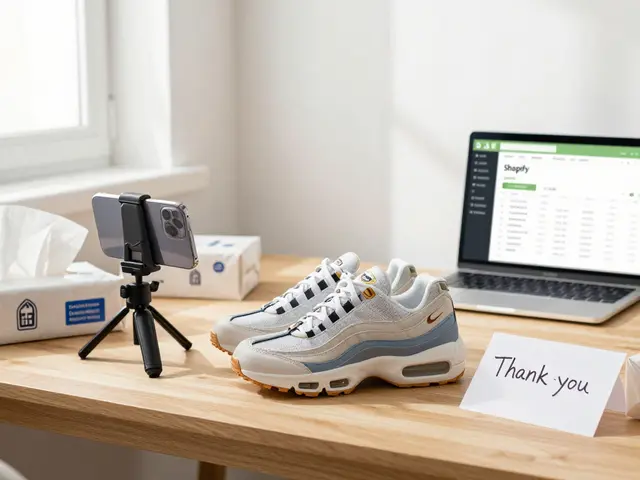
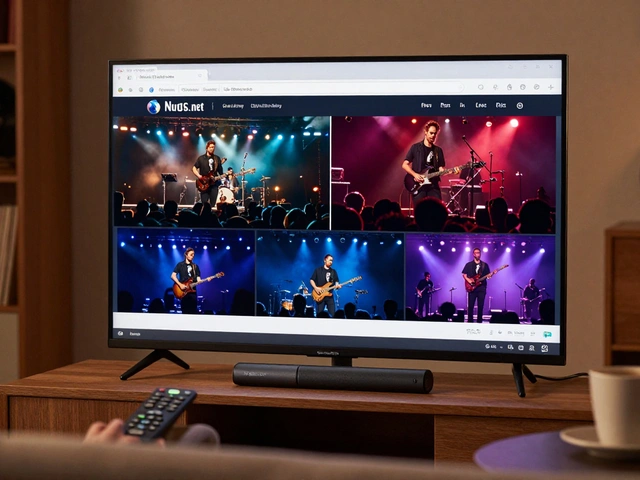
Kieran Danagher
Let me get this straight-you’re gonna film the whole set because you think your 12-second clip will somehow capture the bass vibrating your ribs? Bro. The only thing that’ll survive is your phone’s battery dying halfway through the encore. Just put it away. You’ll remember the moment. Not the pixelated mess.
OONAGH Ffrench
Presence is the only currency that matters here. The music does not live in the screen. It lives in the breath between notes. In the silence after the final chord. In the shared stillness of strangers who for one hour become something more. Your phone is a wall. The music is the space between walls.
Shivam Mogha
Phone off. Done. No explanation needed.
mani kandan
I used to film everything-until I went to a small jazz club in Mumbai and realized I’d missed the entire second set because I was trying to get the perfect lighting on the sax solo. When I finally put my phone away, I heard the musician’s breath between notes. I felt the room breathe with him. That’s when I understood: you don’t capture music. You surrender to it.
Rahul Borole
It is imperative that concert attendees recognize the profound responsibility they bear in preserving the sanctity of live auditory experience. The proliferation of digital devices in performance spaces constitutes a systemic erosion of collective emotional engagement. Adherence to the primary rule-complete deactivation of mobile communication devices-is not merely courteous; it is an ethical obligation to the artist, the acoustics, and fellow patrons. Failure to comply undermines the very essence of live performance as a transcendent communal ritual.
Sheetal Srivastava
Oh, please. You’re just a purist who’s never experienced the true democratization of art through digital archiving. Your ‘silent reverence’ is just bourgeois nostalgia dressed up as spirituality. The fact that you think a ‘shared experience’ requires silence is laughable-music is alive, not a museum exhibit. And let’s not pretend your ‘heartfelt memory’ is any more valid than someone’s 4K 60fps recording that they’ll revisit for decades. You’re not preserving art-you’re hoarding emotion like a hoarder with a single vinyl.
Bhavishya Kumar
Technically speaking the phrase 'turn it off not vibrate not airplane mode off' contains redundant punctuation and improper grammatical structure. It should read: 'Turn it off-not vibrate, not airplane mode-off.' Furthermore, the use of 'you're' as a contraction is acceptable in informal contexts but undermines the authoritative tone of the piece. A more precise construction would be: 'One must deactivate the device entirely.' Also, 'glowing screens' is a metaphor, but it lacks specificity. Are we referring to OLED? LCD? LED backlight bleed? Precision matters.
ujjwal fouzdar
There’s a reason they call it a concert-not a content shoot. We’re not here to archive moments. We’re here to dissolve into them. When you hold up your phone, you’re not capturing the music-you’re building a cage around your soul. And the worst part? You think you’re the one who’s experiencing it. But you’re not. You’re just watching yourself watch. And that’s not presence. That’s performance. And the music? It knows. It always knows.